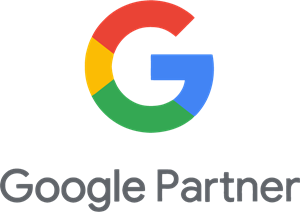Cutting Through the Hype
As someone who’s deeply passionate about the technical intricacies of content and search, from the elegant simplicity of the PageRank algorithm to the mind-bending complexities of BERT and neural matching, I believe it’s crucial to cut through the hype and examine the underlying fundamentals. So let’s dive in and explore what generative AI really means for the future of search and SEO.
SEO is Alive and Well
First, it’s important to note that from what we’re seeing across all our clients at Nextleft, SEO remains as important as ever. Year-over-year, search volumes and clicks continue to rise for the websites and brands we work with. People are still heavily relying on search engines like Google to find information, products, and services online.
Expert consensus is that it will take 5-10 years to see even a 10% shift in search volume moving to generative AI chatbots and away from traditional search engines. Google and other search giants are deeply entrenched and won’t be easily displaced overnight.
Google Has Been Using AI in Search for Years
It’s also crucial to understand that Google Search has been leveraging AI and machine learning for over a decade, well before the recent generative AI hype. Some key milestones include:
- Word2Vec (2013): A neural network-based technique developed by Google to represent words as dense vectors in a high-dimensional space. These word embeddings capture semantic and syntactic relationships between words.
- RankBrain (2015): Google’s machine learning system to help process search results as part of the ranking algorithm
- Neural Matching (2018): AI to better understand the meaning and context behind queries
- BERT (2019): Bidirectional Encoder Representations from Transformers to better understand the nuances of language
At its core, Google Search is a massive language model (LLM) that uses techniques like word embeddings and text-to-vector representations to understand queries and webpages in a mathematical way. This allows Google to go beyond simple keyword matching to truly comprehend user intent.
E-E-A-T and YMYL Content is Key
Google also places a huge emphasis on E-E-A-T (Experience, Expertise, Authoritativeness, Trustworthiness) when it comes to ranking content, especially for YMYL (Your Money or Your Life) topics that can impact a person’s health, finances or wellbeing.
As generative AI advances, demonstrating E-E-A-T through expert-authored content will become even more important as a trust signal. Google has already been elevating the importance of content written by subject-matter experts through initiatives like the “Helpful Content Update.” To rank well, you’ll need to showcase true mastery and insight, not just churn out generic SEO content.
The Power of User Data and Behavior
Another advantage Google has is access to massive amounts of real-time user data to continuously train its models. Every search and click helps inform and improve the search experience. Google also has advanced capabilities like knowledge graphs, question answering, and information synthesis that generative AI chatbots are still catching up to.
At the end of the day, Google’s north star is providing the best possible user experience and most relevant results. People are creatures of habit and can be resistant to major UX changes. Just look at how little the iPhone interface has changed over the years despite countless new features being added.
Similarly, I expect Google will be very thoughtful and gradual about how and where it incorporates generative AI responses directly into search results. The traditional 10 blue links aren’t going away anytime soon. Generative AI will likely be an additive layer to the core search experience rather than a wholesale replacement, at least for the foreseeable future.
Follow the Money
It’s also critical to look at the financial incentives at play. Google generates over 70% of its massive revenues from advertising, primarily search ads. Facebook and Instagram parent company Meta relies on ads for nearly 90% of its income. Combined, Google and Meta have a staggering $3.8 trillion market cap riding largely on search and social media advertising. They have every motivation to adapt and defend their turf against upstarts in the generative AI space. I expect them to aggressively integrate AI capabilities into their own products to provide the best of both worlds – maintaining their profitable ad-based business model while selectively using AI to enhance the user experience.
The Increasing Importance of Expertise
That said, I do believe generative AI will change SEO in some important ways. As these tools improve and usage grows, having high-quality, expert-written content associated with your brand will become even more crucial as a trust signal.
Google has already been elevating the importance of content written by subject-matter experts through initiatives like the “Helpful Content Update.” Generative AI will accelerate this trend. To rank well, you’ll need to demonstrate true mastery and insight, not just churn out generic SEO content.
Optimizing for Off-Site Signals
Finally, I predict that earning mentions and links on trusted third-party websites and news sources will take on added significance in an AI-driven search world.
When a user asks an AI chatbot a question, the model will likely scan its knowledge base and surface information from the most authoritative sources. Brands that are frequently cited in “best of” lists, industry news, and other high-quality off-site content will have an advantage in terms of being referenced in AI-generated responses.
The Path Forward for SEO
While generative AI is a revolutionary technology that shouldn’t be ignored, I don’t believe it will make SEO obsolete anytime soon. Google has been using AI in search for many years and has strong financial incentives to maintain its profitable ad-based business model.
However, AI will raise the bar in terms of the quality, expertise, and authoritativeness required to rank well in search results. The best approach is to focus on creating truly valuable content written by knowledgeable experts that demonstrates strong E-E-A-T for YMYL topics.
Earning mentions and links on trusted third-party websites and news sources will also take on added significance in an AI-driven search world. That’s a winning long-term Content and SEO strategy in my book, even in the age of generative AI.
Sources to dig in deeper:
https://en.wikipedia.org/wiki/Word2vec
https://blog.google/products/search/how-ai-powers-great-search-results
https://developers.google.com/search/blog/2022/12/google-raters-guidelines-e-e-a-t
https://developers.google.com/search/docs/fundamentals/creating-helpful-content
https://blog.google/products/search/search-language-understanding-bert





